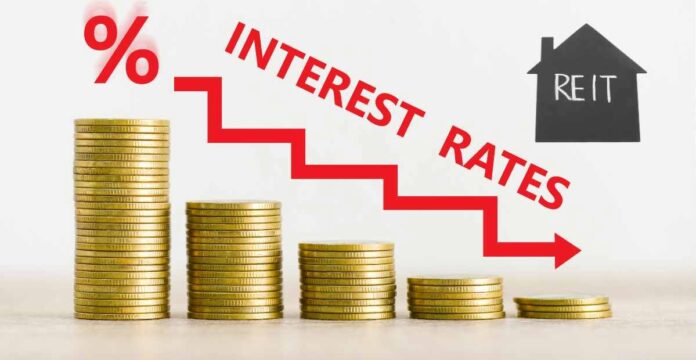Real Estate Investment Trusts (REITs) are highly sensitive to fluctuations in interest rates. These publicly traded investment vehicles generate income primarily through real estate holdings, making them an attractive option for investors seeking dividends and long-term capital appreciation. However, the performance of REITs is significantly influenced by interest rate changes, affecting valuation, investor sentiment, and overall market dynamics.
Why Do Interest Rates Impact REITs?
Interest rates, set by central banks such as the Federal Reserve, dictate borrowing costs, economic growth, and investment flows. When rates rise or fall, the implications for REITs can be profound. Below, we explore the key ways interest rates impact the REIT market.
1. Cost of Debt Financing for REITs
Most REITs rely on debt to acquire, develop, and maintain real estate assets. Since they must distribute at least 90% of their taxable income to shareholders as dividends, they reinvest by borrowing money.
• Higher interest rates increase borrowing costs, making it more expensive for REITs to expand portfolios or refinance existing debt.
• Lower interest rates reduce financing costs, enabling REITs to invest in new properties and generate higher returns for investors.
As a result, rising interest rates tend to suppress REIT growth, whereas falling rates promote expansion and profitability.
2. Yield Comparison and Investor Preference
Investors often compare REIT dividend yields with risk-free alternatives, such as government bonds.
• When interest rates rise, bond yields become more attractive, leading investors to shift from REITs to safer fixed-income investments.
• When interest rates fall, REITs offer higher yields relative to bonds, making them a preferred investment option.
A higher interest rate environment can trigger capital outflows from REITs, reducing demand and potentially lowering share prices.
3. Property Valuations and Cap Rates
Interest rates also affect property valuations through capitalization rates (cap rates), which measure expected returns on real estate investments.
• Rising rates lead to higher cap rates, which decrease property values, negatively affecting REIT asset valuations.
• Lower rates translate into lower cap rates, supporting higher property valuations and boosting REIT stock prices.
Thus, real estate pricing dynamics are directly influenced by interest rate movements, impacting REIT balance sheets and investor confidence.
4. Economic Growth and Demand for Real Estate
Interest rate changes affect broader economic activity, which in turn influences demand for commercial and residential real estate.
• When rates are low, borrowing becomes cheaper, stimulating business expansion, consumer spending, and higher demand for office, retail, and industrial properties.
• When rates rise, borrowing costs increase, potentially slowing economic growth, reducing tenant demand, and lowering occupancy rates in REIT-owned properties.
Economic cycles play a vital role in shaping the performance of REITs, especially those in commercial and hospitality sectors.
5. Sector-Specific Impact on Different Types of REITs
Not all REITs react the same way to interest rate changes. Certain property sectors are more sensitive to fluctuations than others.
Residential and Mortgage REITs
• Highly sensitive to interest rate movements
• Mortgage REITs (mREITs) invest in real estate loans, making them vulnerable to higher borrowing costs and compressed net interest margins.
• Rising rates lead to higher mortgage rates, reducing demand for home purchases and impacting residential REITs.
Office and Retail REITs
• Depend on economic expansion and business growth.
• Higher rates can dampen leasing activity and reduce rental growth.
• Strong economies with rising interest rates may still support rent growth in prime locations.
Healthcare and Industrial REITs
• Less sensitive to interest rates due to long-term lease structures.
• Healthcare REITs benefit from stable tenant demand in medical facilities and senior housing.
• Industrial REITs thrive with e-commerce growth, often offsetting interest rate pressures.
Hospitality and Lodging REITs
• Highly cyclical and impacted by borrowing costs and consumer spending trends.
• Higher rates may lead to reduced travel demand, affecting hotel occupancy and revenue.
Historical Impact of Interest Rate Cycles on REITs
Examining past trends, REIT performance has shown mixed reactions to interest rate hikes and cuts:
• In low-rate environments, REITs typically perform well due to affordable debt financing and strong property demand.
• In rising-rate environments, REITs may struggle if higher borrowing costs outweigh rental income growth.
• Periods of gradual rate increases can allow REITs to adjust through rent escalations and portfolio optimization.
The extent to which interest rates affect REITs depends on the overall macroeconomic landscape, inflation trends, and investor risk appetite.
Investment Strategies for REIT Investors During Interest Rate Changes
Understanding interest rate dynamics is crucial for REIT investors. Here are strategies to navigate market fluctuations:
1. Diversify Across REIT Sectors: Investing in a mix of residential, healthcare, industrial, and retail REITs can help balance exposure to interest rate risks.
2. Focus on High-Quality REITs: Companies with strong balance sheets, low debt, and diversified revenue streams tend to withstand interest rate hikes better.
3. Monitor Federal Reserve Policies: Keeping track of central bank decisions helps anticipate future interest rate movements and adjust portfolio allocations accordingly.
4. Look for Inflation-Resistant REITs: Industrial and healthcare REITs with inflation-linked leases can perform well during rising rate periods.
5. Consider Mortgage REITs Cautiously: Given their sensitivity to interest rate spreads, mortgage REITs may be riskier in volatile rate environments.
Conclusion:
Interest rates play a pivotal role in shaping REIT performance, influencing financing costs, investor sentiment, and property valuations. While rising rates can present challenges, strategic investment choices can help mitigate risks and capitalize on opportunities in various REIT sectors.
By staying informed about interest rate trends, economic conditions, and REIT fundamentals, investors can make well-informed decisions to optimize portfolio returns.

A writer, editor, and publisher with a knack for crafting informative articles.



